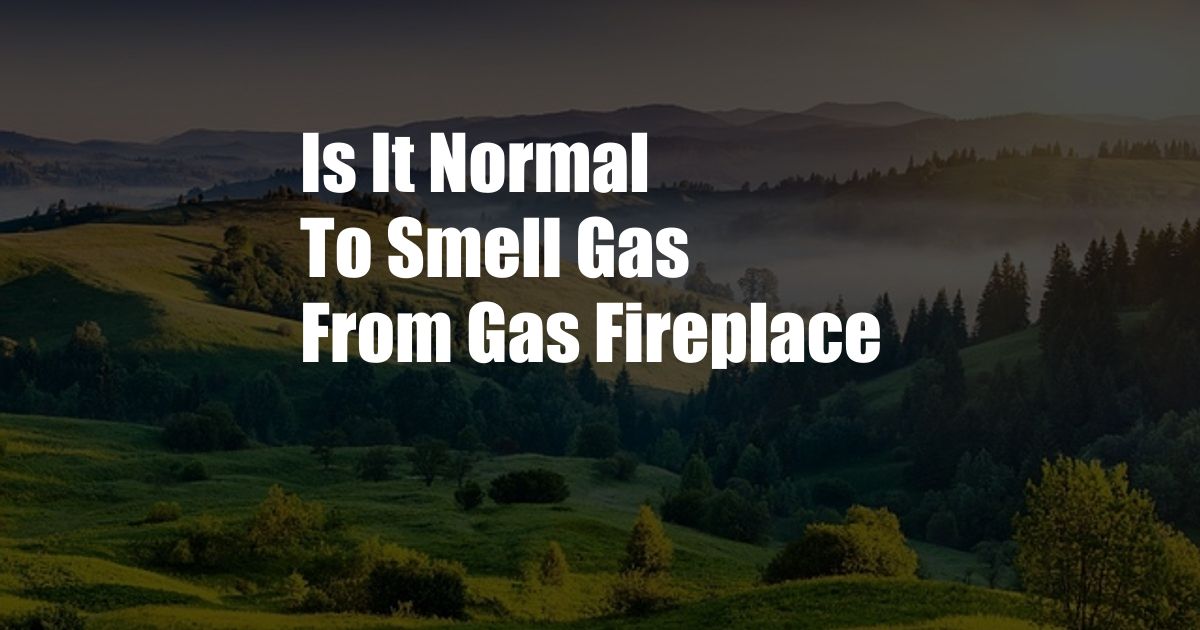
Smell of Gas from Gas Fireplace: Is It Normal?
As the nights grow colder, it’s time to cozy up in front of a warm fire. However, if you smell gas coming from your gas fireplace, it can be an alarming experience. Is it normal, or should you be concerned? This article will delve into the topic, providing a comprehensive guide to the smell of gas from gas fireplaces and ensuring your safety.
Gas fireplaces offer the ambiance and warmth of a traditional fireplace without the hassle of wood or ashes. However, they come with their own set of potential hazards, including gas leaks. Gas leaks can be dangerous, as they can lead to explosions or carbon monoxide poisoning. That’s why it’s important to understand what causes the smell of gas from gas fireplaces and what to do if you detect it.
Causes of the Smell of Gas from Gas Fireplaces
There are several reasons why you might smell gas coming from your gas fireplace. Some of the most common causes include:
- A leak in the gas line: This is the most serious cause of the smell of gas from a gas fireplace. Gas lines can develop leaks over time, especially if they are not properly installed or maintained. If you smell gas, it’s important to turn off the gas supply to the fireplace immediately and call a qualified gas technician to repair the leak.
- A loose or damaged gas valve: The gas valve is responsible for controlling the flow of gas to the fireplace. If the gas valve is loose or damaged, it can allow gas to leak out. This can be a dangerous situation, as it can lead to a fire or explosion. If you suspect that the gas valve is loose or damaged, it’s important to turn off the gas supply to the fireplace and call a qualified gas technician to repair it.
- A cracked or damaged heat exchanger: The heat exchanger is a component of the gas fireplace that transfers heat from the fire to the room. If the heat exchanger is cracked or damaged, it can allow gas to leak into the room. This can be a dangerous situation, as it can lead to carbon monoxide poisoning. If you suspect that the heat exchanger is cracked or damaged, it’s important to turn off the gas supply to the fireplace immediately and call a qualified gas technician to replace it.
What to Do If You Smell Gas from Your Gas Fireplace
If you smell gas coming from your gas fireplace, it’s important to act quickly. Here are some steps to follow:
- Turn off the gas supply to the fireplace immediately. This will stop the flow of gas to the fireplace and prevent further leakage.
- Open the windows and doors to ventilate the area. This will help to remove any gas that has leaked into the room.
- Call a qualified gas technician to repair the leak. Do not attempt to repair the leak yourself, as this can be dangerous.
Preventing Gas Leaks from Gas Fireplaces
To help prevent gas leaks from gas fireplaces, it’s important to take the following precautions:
- Have your gas fireplace inspected and serviced by a qualified gas technician annually. This will help to ensure that your fireplace is functioning properly and that there are no leaks.
- Check the gas lines and connections regularly for leaks. You can do this by using a soapy water solution. Apply the solution to the lines and connections and look for bubbles. If you see bubbles, it indicates a leak.
- Never use a gas fireplace if you suspect there is a leak. If you smell gas, turn off the gas supply to the fireplace and call a qualified gas technician to repair the leak.
Conclusion
The smell of gas from a gas fireplace can be an alarming experience, but it’s important to remember that it’s not always a sign of a serious problem. However, it’s important to take any gas leak seriously and to take the necessary steps to ensure your safety. By following the tips and advice in this article, you can help prevent gas leaks and keep your family safe.
Are you interested in learning more about the safety of gas fireplaces?